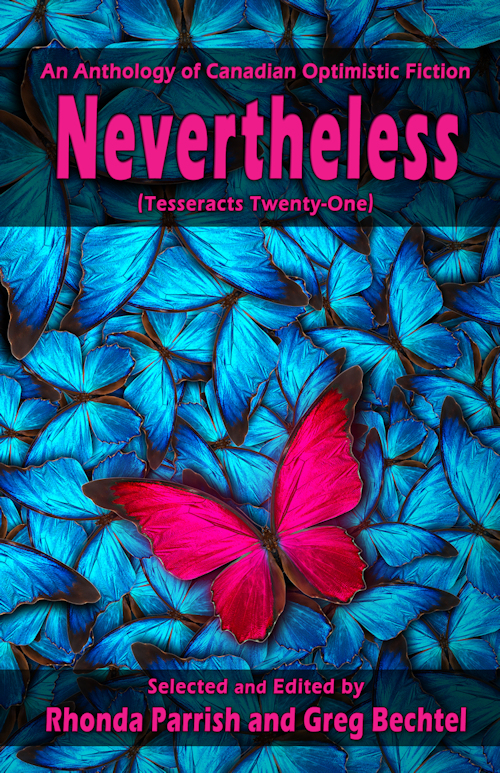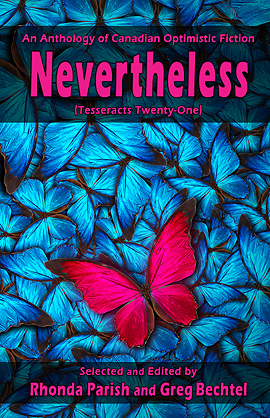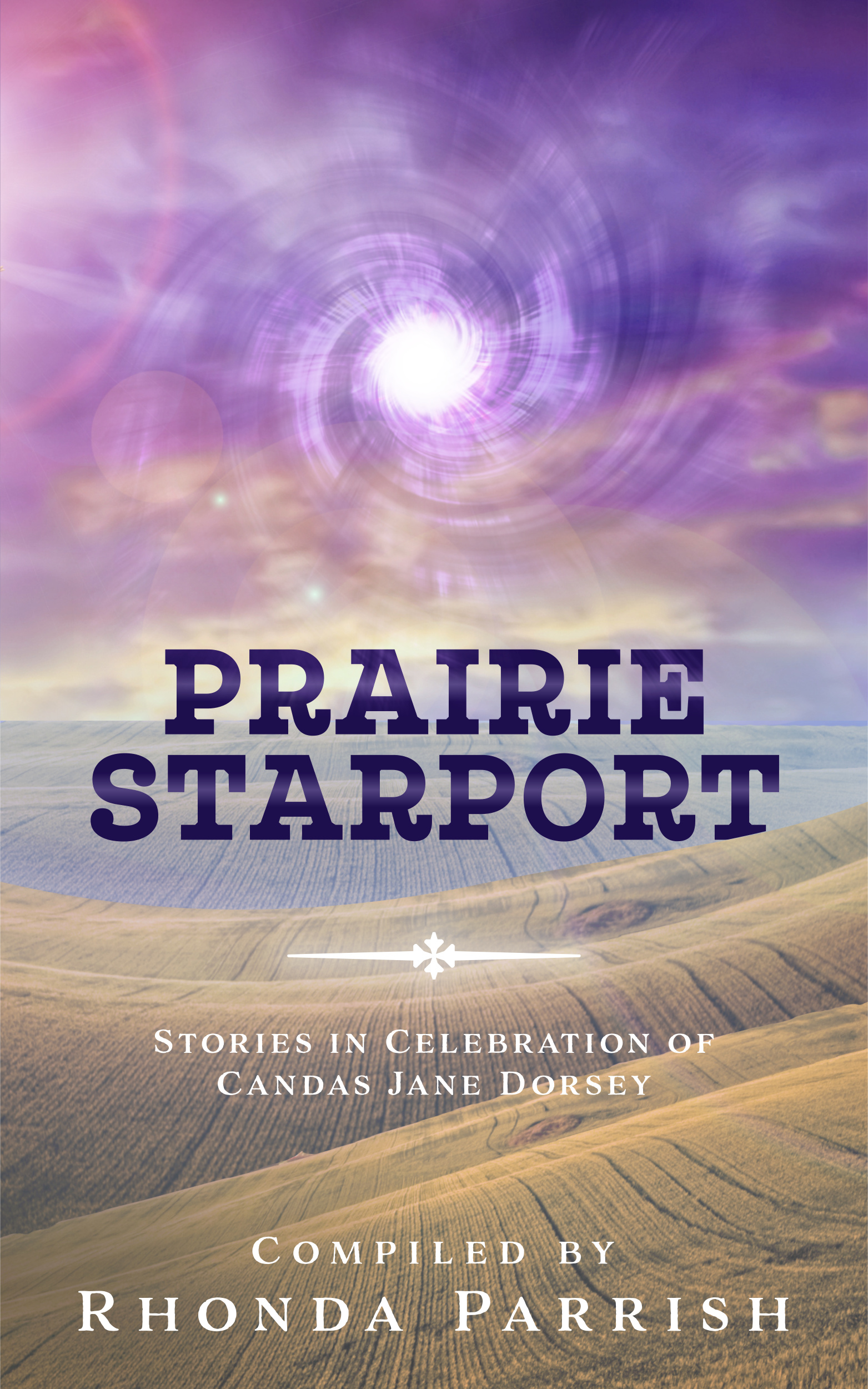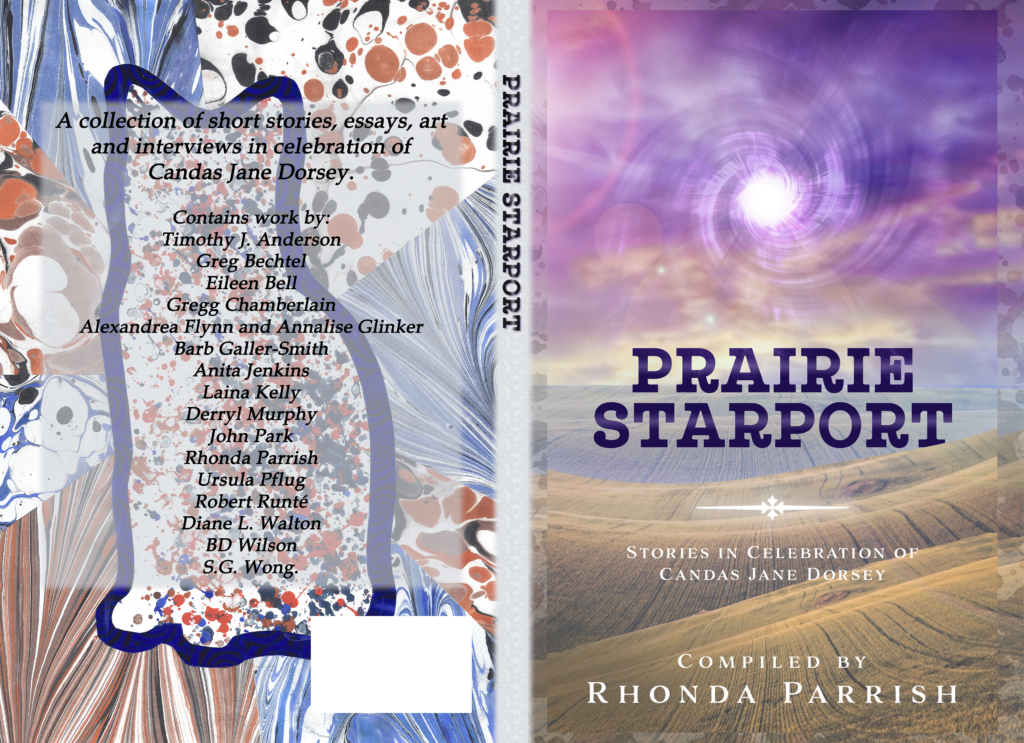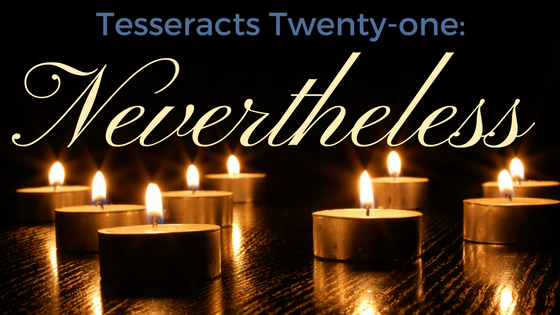We recently celebrated the release of Prairie Starport: Stories in Celebration of Candas Jane Dorsey but some of the contributors wanted to do something a bit more. And so for the next few Fridays my blog is going to feature more stories about Candas and the anthology in the form of guest posts for a mini blog series I’m calling:
Candas as Conversationalist
by Ursula Pflug
Candas included me in a few wonderful anthologies back when I was a baby writer, inclusions that were meaningful and inspired me to stay with the struggle, the way early sales can. We met in ’86, at a workshop Judith Merril facilitated in Peterborough, even though many of us were Torontonians. Judy knew people in the Patch, and found us both housing and a workshop location at the George Street Peter Robinson residences, empty for the summer. One night we all went for dinner to a little cafe on the north side of Charlotte Street. I ordered linguine with clam sauce, all the rage back then; now we cringe at all that white flour. Judy and Candas talked animatedly about books and people the rest of us had never heard of, but also took the time to compliment my little son on his Osh Kosh overalls. He was smitten.
I loved the work Candas brought–fragments which, much later, became part of A Paradigm Of Earth. Some books just need to be written. They tell you so right away, and you have to keep at them whether you want to or not, sometimes for years. The piece I brought to that workshop was a fragment of The Alphabet Stones. Of all the early work of mine that Judy was kind enough to read and comment on, it was the one she said I had to write. It’s a novel that has so many layers and weavings in an out of my life and Eastern Ontario that it took me decades to say what wanted saying, but I’d guess it’s partly because of Candas and Judy’s enthusiasm that it got done. It’s only we ourselves who can do the work, but in the case of a novel, we’re skipping while someone else turns the ropes, and their chanting the rhymes keeps us going.
It was an oddly prophetic trip, because a year or so later my husband and I left Toronto with our little son to rent my father’s country place, a farm in Norwood east of Peterborough, a city I barely knew beyond that trip with a motley crew of aspiring SF and F writers. It was as though Judy had blessed a choice I didn’t even know I was making–I know that sounds twee but it’s a feeling I got from her more than once. Judy and Doug would go to the Hangman in the evenings, and sometimes I joined them for half an hour if I couldn’t get the baby to sleep. Her wholehearted approval of Doug meant something too, as I didn’t have a mother to tell me I’d chosen well.
I feel a little teary now, maybe because the things I’m writing about happened so long ago, and because of all the loss between now and then; Doug and I are at the age when you lose people you really liked much more often than you’d prefer.
Candas published my first novel, the inter-dimensional turtle tale Green Music, when she and Timothy Anderson were proprietors at Tesseract Books, before it became Edge. It didn’t occur to me to include an excerpt from that, even though there are several stand-alones which appeared in places like Now Magazine, Quarry and Infinity Plus. Rather, I chose a piece which she included in Prairie Fire SF, a special issue she edited in conjunction with ConAdian, the 1994 Winnipeg Worldcon.
“One Day I’m Gonna Give Up the Blues For Good,” the near future story (or maybe it’s an alternate world–in my short fiction there’s often a blur there) reprinted in this antho, talks about Ryoan-ji, the famous Zen Garden in Kyoto. I had not yet been there when I wrote the story, and the name of the garden wasn’t mentioned in the original published version, though the place was nevertheless recognizable by context. In the story the garden is filled with stillness, raked gravel around stones, whereas when I was there it was teeming with visitors. My niece and I shot video, and I’d link to it here, but the famous stones are barely visible because of the crowd. Japan is a place of crowds–I probably noticed this more because I relocated to an empty part of Ontario decades ago.
Candas and I have spent the last few months editing The Food Of My People, a story collection for Exile, though that title may change. It’s inspired by a short story of Candas’s which appeared in my previous antho for Exile, The Playground of Lost Toys, which I co-edited with Colleen Anderson. There’s a lot of reading and detail work when you’re working on an antho, and back and forth with your co-editor and your authors–there you are, attending to your life and your family and work commitments and trying to squeeze the book into the corners. There were moments I felt stretched–this happens to all of us–and then I’d remember I was working with Candas–or she’d remind me, with a couple of yummy lines in an email that were OT but even more delicious because of it.
Candas is one of those people you can have a conversation with that you drop for a year or many years and then pick back up–because you both remember it as a talk worth having, the kind that brings joy when you return. It was this that made me slow down, to remember to have a correspondence that wasn’t just about the nuts and bolts of the work, but that afforded pleasure. Because time is sliding by, and you have to grab joy where you can. In the winter I told a student that I was struggling to put a positive light on it, but this was what I came up with–the fact that Doug and I are losing so many good people signifies how many we knew in the first place. If someone had told me, when I was welcoming new friends into my life that I’d have to lose them all later on, one by one, would it have stopped me?
Like watching candle lanterns float down the river in Hiroshima on August 6th, each symbolic of a loss, I silently say goodbye to one after another. At one point during the editing process, having just lost a woman I’d been very fond of, I wrote to Candas: Thank you for still being here. It’s something I say regularly, and only a little tongue in cheek: Good conversation, it’s one of the things I came to the planet for.
We’ve travelled on promotional tours together, Candas and her partner Tim Anderson and I, to Madison and Orlando and Calgary. I’m shy by nature and my husband isn’t the sort to go to cons with me–our mutual family is the international electronic arts community–so finding people to hang out with at cons can be a bit awkward. But with Candas and Tim there’s always that–it’s not just chit chat, pleasant as that may be. It’s time well spent, in good conversation. The kind I came to the planet for.
People talk so much about what they are doing now, what they have going to press at this very moment, and I do understand why; each book’s fifteen minutes in the spotlight is so very brief. But let’s not forget we have a history–and a great one. Here’s to Candas, who has given so very much to our community. Let’s remember to take the time. To celebrate not just who we are, but who we were. Let’s remember to do it as we go along, and not just save it up for the end.
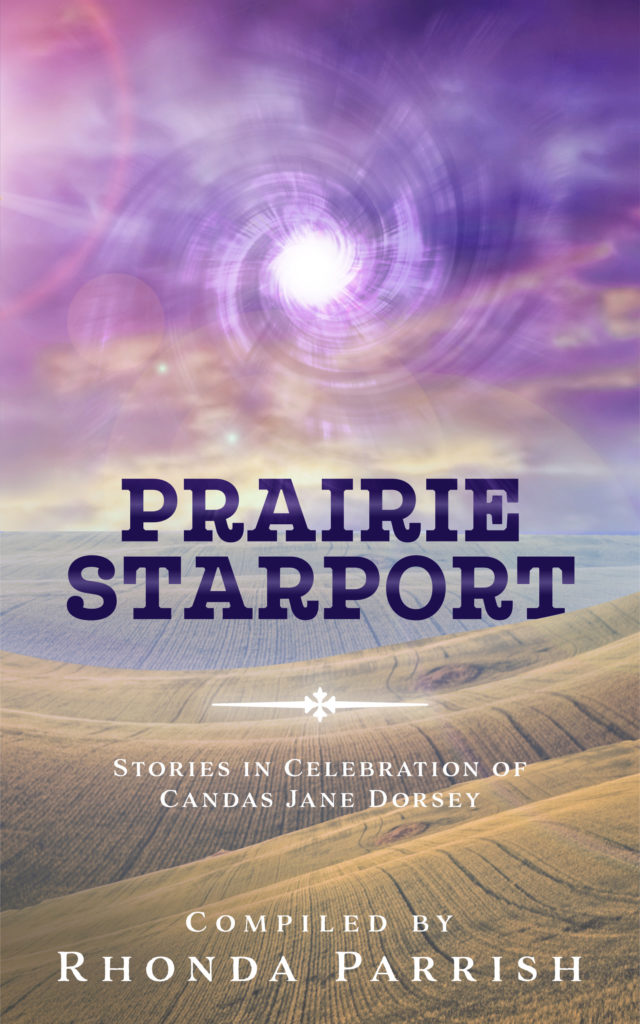
Download it for free at:
BookFunnel
Kobo
Playster
Apple
Also available at Amazon
Paperback available at Amazon:
.com
.co.uk
And add it to your shelves at Goodreads
All profits from this collection will be donated to the Bent Arrow Traditional Healing Society in Candas’ name.
